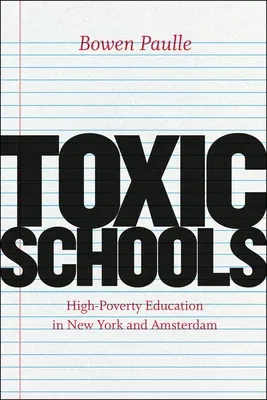Violent urban schools loom large in our culture: for decades they have
served as the centerpieces of political campaigns and as window dressing
for brutal television shows and movies. Yet unequal access to quality
schools remains the single greatest failing of our society--and one of
the most hotly debated issues of our time. Of all the usual words used
to describe non-selective city schools--segregated, unequal,
violent--none comes close to characterizing their systemic dysfunction
in high-poverty neighborhoods. The most accurate word is toxic.
When Bowen Paulle speaks of toxicity, he speaks of educational worlds
dominated by intimidation and anxiety, by ambivalence, degradation, and
shame. Based on six years of teaching and research in the South Bronx
and in Southeast Amsterdam, Toxic Schools is the first fully
participatory ethnographic study of its kind and a searing examination
of daily life in two radically different settings. What these schools
have in common, however, are not the predictable ideas about race and
educational achievement but the tragically similar habituated stress
responses of students forced to endure the experience of constant
vulnerability. From both sides of the Atlantic Ocean, Paulle paints an
intimate portrait of how students and teachers actually cope, in real
time, with the chronic stress, peer group dynamics, and subtle power
politics of urban educational spaces in the perpetual shadow of
aggression.

